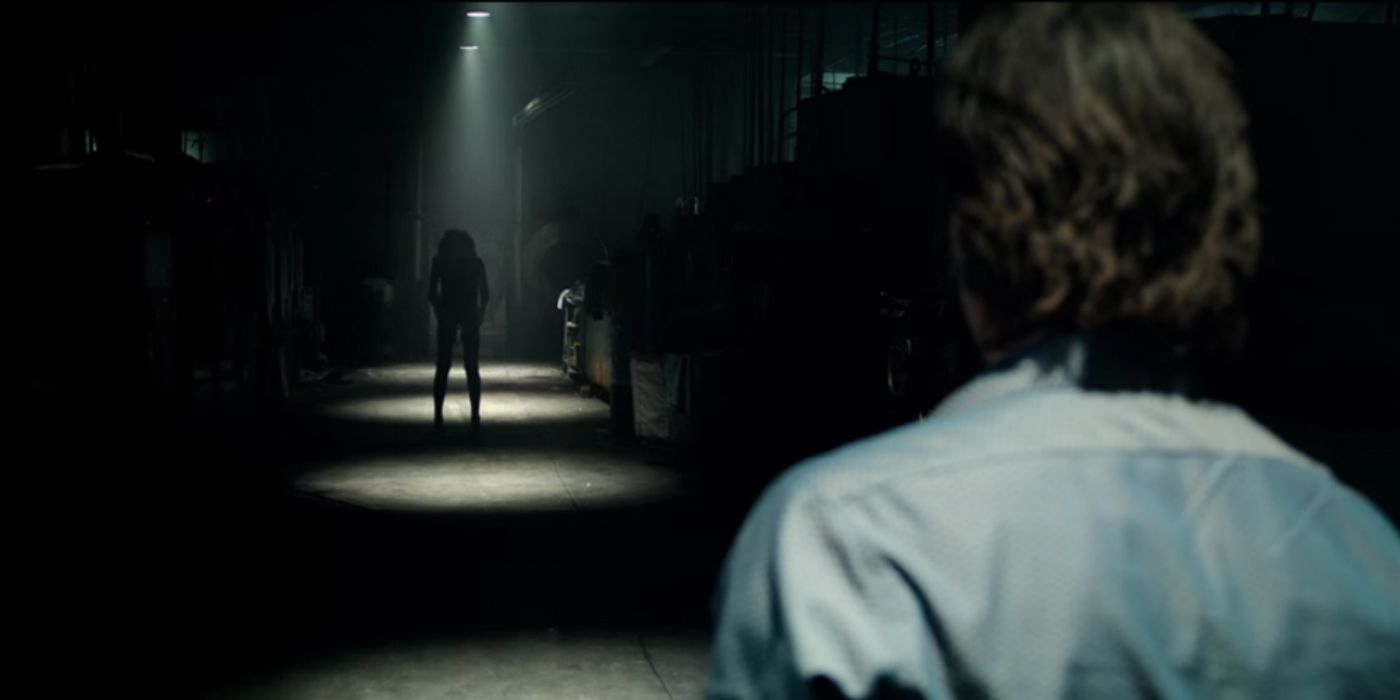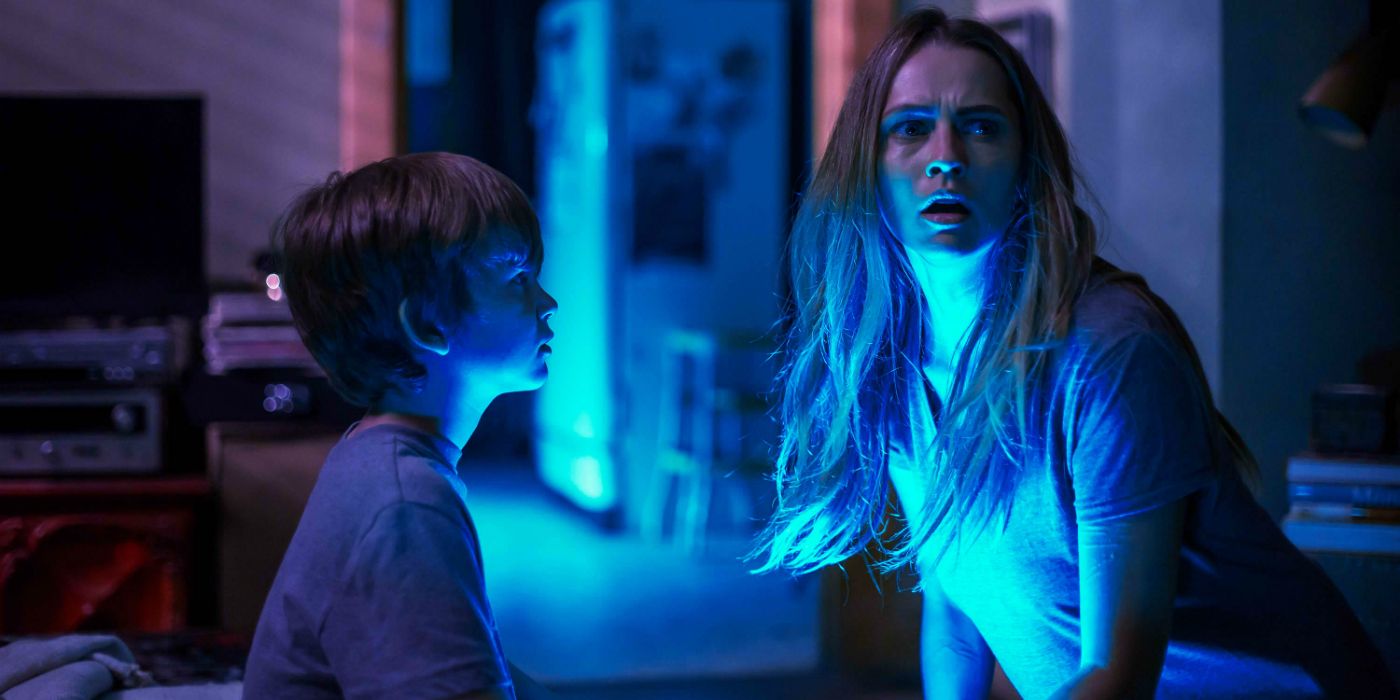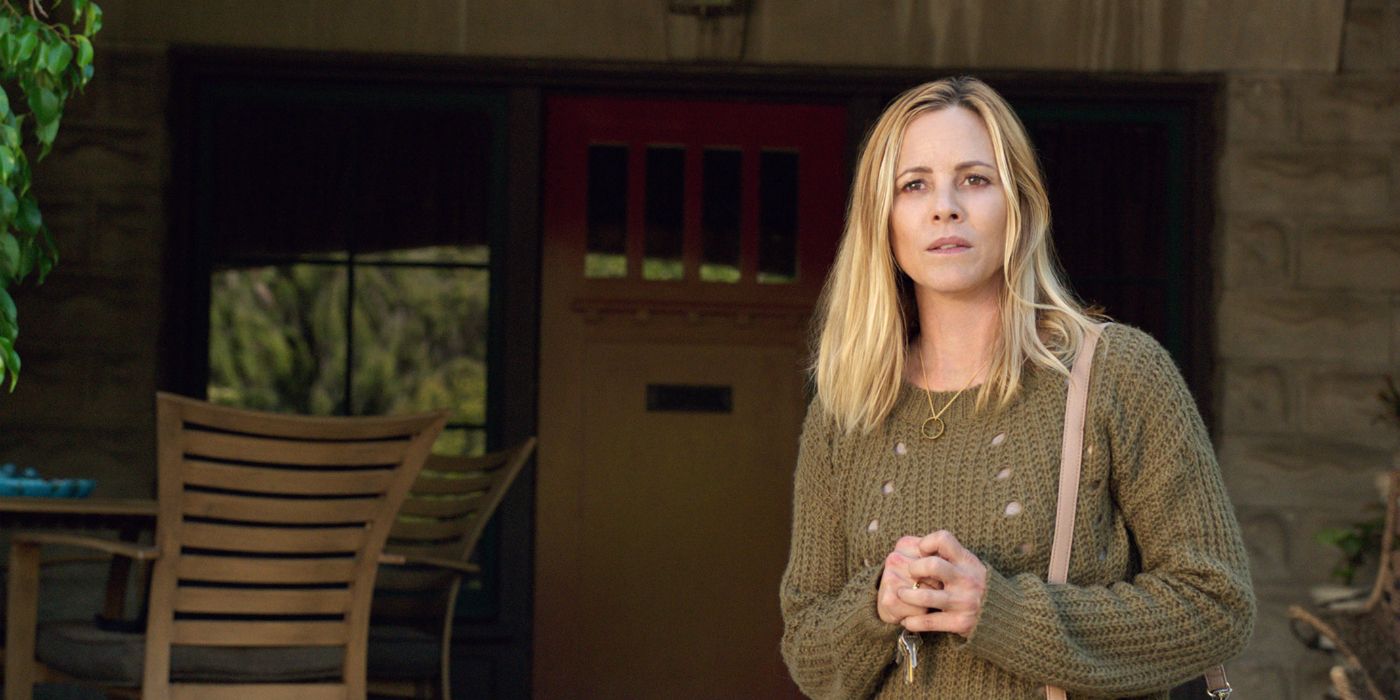Lights Out makes for a lean and mean scare-delivering machine, but is less effective as a supernatural horror parable.
Lights Out stars Teresa Palmer as Rebecca, a young woman who's long been estranged from her mother Sophie (Maria Bello), partly due to her mom's ongoing struggle with her mental illness. One day, Rebecca is contacted by a child protection service agent about her younger brother, Martin (Gabriel Bateman), when the latter starts having trouble staying awake in class not too long after he and Sophie suffered a personal loss. Martin tells Rebecca that he's been staying awake at night out of fear of a mysterious woman who always stays in the shadows and has been hanging around their home - a woman that Sophie says is her old friend Diana, he tells Rebecca.
Rebecca, however, remembers Diana as being the imaginary person that Sophie used to talk about when Rebecca was young and decides to take Martin to stay with her, fearing for his safety and worrying that their mom is descending further into insanity (being unable to deal with her illness responsibly). Truth is, though, Diana is very much real... and as Rebecca learns more about Diana's past, she comes to realize that she and her family are in terrible danger.
Lights Out is the feature-length directorial debut for David F. Sandberg and is based on Sandberg's acclaimed 2013 three-minute short film of the same name; the star of Sandberg's original short, Lotta Losten (who is also married to Sandberg), likewise makes a special appearance in the feature-length version. Sandberg, whose collaborators here include producer James Wan (the director of Saw, Insidious and The Conjuring) as well as screenwriter Eric Heisserer (co-writer of the A Nightmare on Elm Street remake and The Thing prequel), creates a larger backstory and mythos here for the intriguing monster that is featured in the original Lights Out short: a monstrous-looking, pale-skinned woman who only appears in the shadows and vanishes when a light is shone on her.
The mythology that Sandberg and Heisserer developed for "Diana" (played by stunt specialist/actor Alicia Vela-Bailey) in Lights Out is serviceable for the film's purposes, but is also derivative of that for boogiemen (and boogiewomen) that have come before - which, in turn, weakens the film's efforts to craft a worthwhile parable about mental illness that involves the "Diana" character. Plot threads about Rebecca's relationships with her brother and boyfriend, which are informed by her strained connection with her mother and fears about her own potential mental instability, are equally serviceable yet thinly-sketched in the actual film. For these reasons, Lights Out is to the critically-acclaimed 2014 film The Babadook what this year's The Shallows is to the Steven Spielberg classic Jaws; a solid genre movie that makes for far less of a thematically-layered horror allegory by comparison.
Fortunately, like The Shallows, Lights Out succeeds at its other main goal: to deliver scares, thrills, and jolts as quickly and efficiently as possible. While the film doesn't explore the idea of a supernatural villain whose only weakness is the light and who can be anywhere at any time through a wide variety of scenarios (nor does the monster always bide by a consistent set of "rules"), the concept allows Lights Out to maintain a sense of suspense throughout - as moviegoers are always being kept aware that there's a danger lurking around the corner, during any scene not set under the cover of broad daylight. Lights Out's brisk running time allows the film to avoid wearing out its welcome too, as its low-budget aesthetic and approach to crafting spooky scenarios might've become strained had they needed to sustain a longer running time.
From a directorial perspective, Sandberg does a solid job with his first time as a feature-length helmsman, but there's room for improvement - as illustrated by Lights Out's somewhat uneven approach to sequencing and occasionally stilted performances. While seasoned character actor Maria Bello (McFarland, USA) does good work as the mentally-tormented Sophie, the emotional moments between Teresa Palmer (Warm Bodies), Gabriel Bateman (Annabelle) and Alexander Dipersia (90210) as Rebecca's would-be boyfriend Bret, come off as more melodramatic and campy than intended (especially when they adhere to tired horror movie tropes with their behavior and actions). Like the rest of the film, the Light Out cast is at their best when they being terrorized by Diana and not during the quieter dramatic beats in-between them.
Lights Out makes for a lean and mean scare-delivering machine, but is less effective as a supernatural horror parable. It's a promising directorial debut for Sandberg and has more ambition than the average low-budget horror/thriller, but falls just short at expanding the concept of Sandberg's original Lights Out short film into a richly-layered larger piece of cinematic storytelling. Still, Lights Out shows that its director has a talent for devising spooky situations and/or scenarios, suggesting that with additional development as a filmmaker (and perhaps a larger budget), Sandberg could deliver a fully captivating horror movie. As it stands though, moviegoers who are searching for a nice summertime chill may get their money's worth from Lights Out - even if they have little to no interest in the people being terrorized, other than during the scenes where Diana finds new ways to inspire dread in them.
TRAILER
Lights Out is now playing in U.S. theaters nationwide. It is 81 minutes long and is Rated PG-13 for terror throughout, violence including disturbing images, some thematic material and brief drug content.
Let us know what you thought of the film in the comments!




